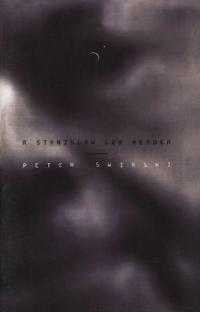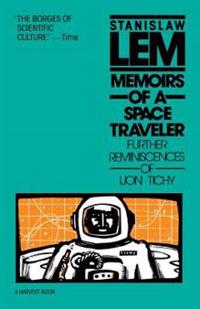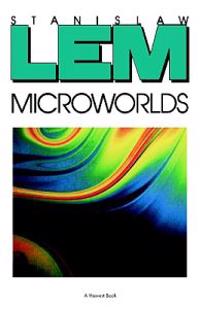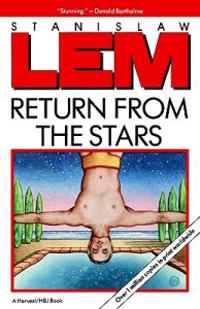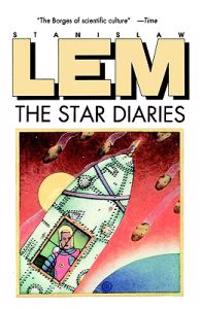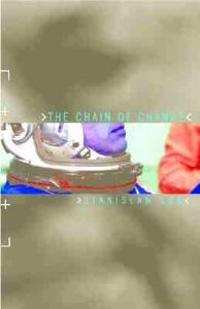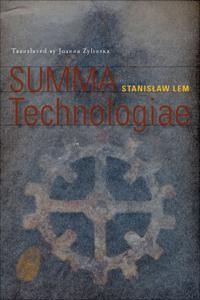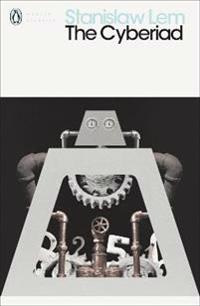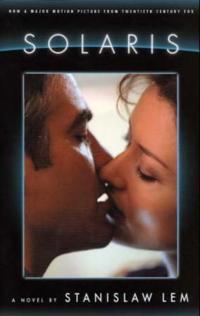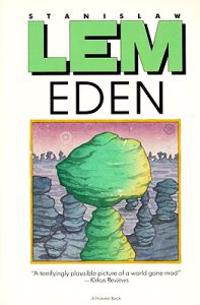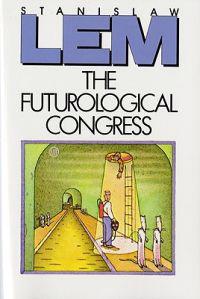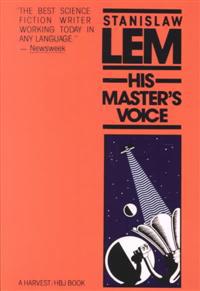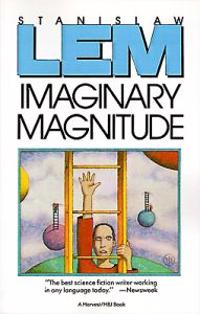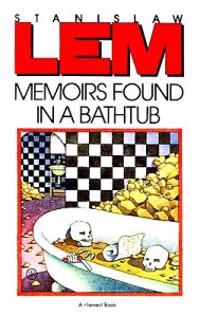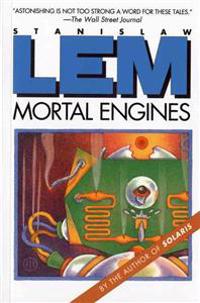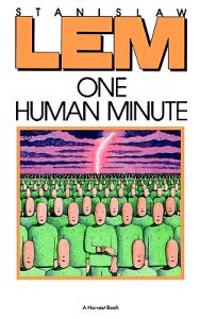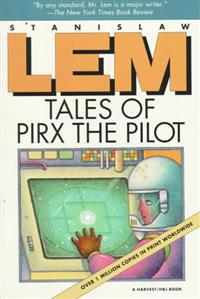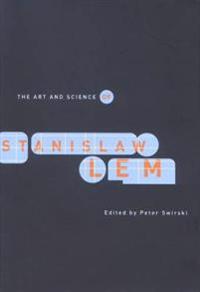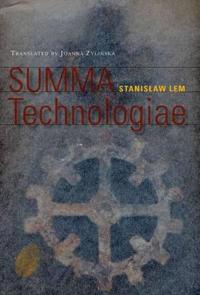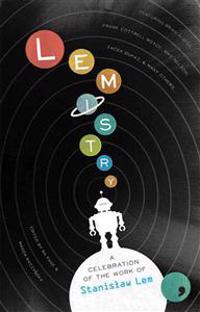A Stanislaw Lem Reader (Pocket)
avPeter (EDT) Swirski, Stanislaw (EDT) Lem, Peter Swirski
ISBN: 9780810114951 - UTGIVEN: 1997-11A dialogue with Stanislow Lem, best known for his work in science fiction. His novels and short stories have been translated into over 40 languages and have sold 25 million copies.[...]
Memoirs of a Space Traveler: Further Reminiscences of Ijon Tichy (Häftad)
avStanislaw Lem, Stanislaw Lem
ISBN: 9780156586351 - UTGIVEN: 1983-04Microworlds (Häftad)
avStanislaw Lem, LEM, Franz Rottensteiner
ISBN: 9780156594431 - UTGIVEN: 1986-11In ten essays, a master of science fiction and fantasy discusses the current state of the genre in analyses of the scientific and literary bases of his own and others' work[...]
Return from the Stars (Häftad)
avStanislaw Lem, LEM
ISBN: 9780156765930 - UTGIVEN: 198906After a long journey to a distant star, Hal Bregg returns to the earth where he finds that technology has developed beyond his imagining, prosperity is limitless, and peace reigns and where he discovers new meaning in life[...]
Star Diaries: Further Reminiscences of Ijon Tichy (Häftad)
avStanislaw Lem, LEM
ISBN: 9780156849050 - UTGIVEN: 198506Ijon Tichy, Lem's Candide of the Cosmos, encounters bizarre civilizations and creatures in space that serve to satirize science, the rational mind, theology, and other icons of human pride. Line drawings by the Author. Translated by Michael Kandel. A Helen and Kurt Wolff Book
[...]The Chain of Chance (Häftad)
avStainslaw Lem, Stanislaw Lem
ISBN: 9780810117303 - UTGIVEN: 200003Written in the style of a detective novel, "The Chain of Chance" is classic Lem: a combination of action, hard science, and philosophical investigation. An ex-astronaut is hired to look into the death of several wealthy businessmen. The authorities suspect a pattern, but neither the police nor a sup[...]
Summa Technologiae (Pocket)
avStanislaw Lem, Joanna (TRN) Zylinska, Stanislaw Lem
ISBN: 9780816675777 - UTGIVEN: 2014-01
The Polish writer Stanislaw Lem is best known to English-speaking readers as the author of the 1961 science fiction novel "Solaris," adapted into a meditative film by Andrei Tarkovsky in 1972 and remade in 2002 by Steven Soderbergh. Throughout his writings, comprising dozens of science fiction n[...]The Cyberiad (Häftad)
avStanislaw Lem
ISBN: 9780141394596 - UTGIVEN: 2014-06This is a charming, mind-bending and anarchic book of imagined civilizations. 'Most cosmic civilizations long for things, in the depths of their souls, they would never openly admit to...' Trurl and Klapaucius are 'constructors' - they travel around the universe creating machines of astonishing inve[...]
Solaris (Häftad)
avStanislaw Lem
ISBN: 9780156027601 - UTGIVEN: 200211A classic work of science fiction by renowned Polish novelist and satirist Stanislaw Lem When Kris Kelvin arrives at the planet Solaris to study the ocean that covers its surface, he finds a painful, hitherto unconscious memory embodied in the living physical likeness of a long-dead lover. Others ex[...]
Peace on Earth (Pocket)
avLem, Stanislaw
ISBN: 9780156028141Ijon Tichy is the only human who knows for sure whether the self-programming robots on the moon are plotting a terrestrial invasion. But a highly focused ray severs his corpus collosum. Now his left brain can't remember the secret and his uncooperative right brain won't tell. Tichy struggles for con[...]
Eden (Häftad)
avStanislaw Lem
ISBN: 9780156278065 - UTGIVEN: 199110A six-man crew crash-lands on Eden, fourth planet from another sun. The men find a strange world that grows ever stranger, and everywhere there are images of death. The crew's attempt to communicate with this civilization leads to violence and to a cruel truth-cruel precisely because it is so human.[...]
The Futurological Congress: From the Memoirs of Ijon Tichy (Häftad)
avStanislaw Lem
ISBN: 9780156340403 - UTGIVEN: 198510Bringing his twin gifts of scientific speculation and scathing satire to bear on that hapless planet, Earth, Lem sends his unlucky cosmonaut, Ijon Tichy, to the Eighth Futurological Congress. Caught up in local revolution, Tichy is shot and so critically wounded that he is flashfrozen to await a fut[...]
Imaginary Magnitude (Häftad)
avStanislaw Lem
ISBN: 9780156441803 - UTGIVEN: 198510These wickedly authentic introductions to twenty-first-century books preface tomes on teaching English to bacteria, using animated X-rays to create "pornograms," and analyzing computer-generated literature through the science of "bitistics." "Lem, a science fiction Bach, plays in this book a googlep[...]
Memoirs Found in a Bathtub (Häftad)
avStanislaw Lem
ISBN: 9780156585859 - UTGIVEN: 198607The year is 3149, and a vast paper destroying blight-papyralysis-has obliterated much of the planet's written history. However, these rare memoirs, preserved for centuries in a volcanic rock, record the strange life of a man trapped in a hermetically sealed underground community. Translated by Micha[...]
Mortal Engines (Häftad)
avStanislaw Lem
ISBN: 9780156621618 - UTGIVEN: 199205These fourteen science fiction stories reveal Lem's fascination with artificial intelligence and demonstrate just how surprisingly human sentient machines can be. "Astonishing is not too strong a word for these tales" (Wall Street Journal). Translated and with an Introduction by Michael Kandel.
[...]One Human Minute (Häftad)
avStanislaw Lem
ISBN: 9780156687959 - UTGIVEN: 1986-11Combining a bizarre sense of humor with more somber philosophical reflections, the author presents three provocative previews of life in the twenty-first century[...]
Jack and Lem (Pocket)
avDavid Pitts
ISBN: 9780306816239 - UTGIVEN: 2008-03I'm not that kind of boy," Jack angrily wrote to Lem after his friend made a sexual advance. But Jack didn't end the relationship. From the time John F. Kennedy and Kirk LeMoyne "Lem" Billings met at Choate, until the President's assassination thirty years later, Jack and Lem remained best friends. [...]
Solaris (Häftad)
avStanislaw Lem
ISBN: 9780571219728 - UTGIVEN: 200302A psychologist arrives at a research space station called Prometheus, his mission to ascertain whether research into the mysterious planet of Solaris should be terminated. He finds Prometheus all but deserted, its straggling crew seemingly haunted by hallucinations of figures from their pasts.[...]
The Art and Science of Stanislaw Lem (Häftad)
ISBN: 9780773530478 - UTGIVEN: 200806The Polish science fiction writer Stanislaw Lem, whose works include Return from the Stars, The Cyberiad, A Perfect Vacuum, and Solaris, has been hailed as a "literary Einstein" and a science-fiction Bach. "The Art and Science of Stanislaw Lem" offers an inter-disciplinary analysis of his influence [...]
His Master's Voice (Häftad)
avStanis aw Lem
ISBN: 9780810117310 - UTGIVEN: 2006-06Originally published in 1968, His Master's Voice is a transitional work between Stanislaw Lem's more or less straightforward science fiction of the earlier years and the searching, difficult, and frequently experimental works of later decades. The novel takes the form of a posthumously published dia[...]
Lemistry (Häftad)
avStanislaw Lem, Brian W. Aldiss, Frank Cottrell Boyce
ISBN: 9781905583324 - UTGIVEN: 201109

